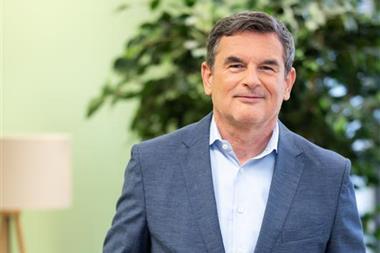SWEDEN - AP6 - one of Sweden's national pension funds, with focus on private equity - has written off its SEK570m (€63m) investment in Terrestrial Broadcasting Investments (TBI).
The newly appointed board deemed the investment risk too great to make further investments in the company and has therefore written down its 78% stake to zero.
TBI uses Swedish technological expertise to develop digital terrestrial TV in Ghana, Kenya, Uganda and China.
The business model has been to offer a distribution platform for local and international TV channels, but it has been significantly delayed, according to AP6.
Marianne Dicander Alexandersson, chief executive at AP6, said the risk was too great and the timeframe too long, which would mean too much of an investment of capital before the business would be able to stand on its own two feet.
Ebba Lindsö, chairman of the board, added that management was currently working as fast as it could in terms of clarifying the fund's holdings.
He said the board was being especially careful not to take on investment risk that did not suit the fund.
As a result of the AP6's writedown, TBI is looking to restructure the business.
AP6 has SEK19.9bn in assets and invests in some 350 companies, of which 50 are direct investments.
In other news, AP1, another of the national pension funds, has responded to the EU Green Paper on corporate governance, saying that increasing regulation would be the wrong thing to do.
The response - signed by chief executive and president Johan Magnusson and head of communication and ESG Ossian Ekdahl - said self-regulation on a national level would be more flexible and that the EU Commission had failed to show that increased regulation would benefit owners or companies.
Further, it pointed out that laws, tradition and ownership concentration and codes of conduct varied significantly among member states, making it impossible to fund a corporate governance framework worked for everyone.
AP1 suggested the EU regulate the principles of a corporate governance framework but let the individual countries take care of the details, preferably through self-regulation.
In addition, it said the Swedish corporate governance model worked well even in international comparison, as stated by the World Economic Forum, and there was a risk the domestic model would deteriorate should EU-wide regulations be introduced.
Meanwhile, Ole Settergren, head of pensions development at Pensionsmyndigheten, the Swedish Pensions Agency, has argued that freedom of choice, while important, should be used sparingly when it comes to selecting funds in pensions.
He said the notion that one had to be actively engaged in pensions to get a good retirement income was a misconception, and that the most important factor in getting a good pension was the length of one's working life.
He said one would do better to exercise a couple of times a week than worry about which funds to choose within the PPM, the Swedish national defined contribution system.
Settergren said it was important to let those who wanted to be actively engaged in the PPM to do so, but he maintained that this is not suitable for everyone and that most would gain by "remaining passive".
Finally, SPP, the pension and insurance provider, has appointed Per Lindberg as chief risk officer.
He will head up a newly created department with overall responsibility for management and risk control within SPP. He joins in September.
Lindberg joins from Towers Watson, where he has worked since 2002 with actuarial and financial consulting to life insurers in areas such as Solvency II, ALM and the implementation of financial and actuarial models.












